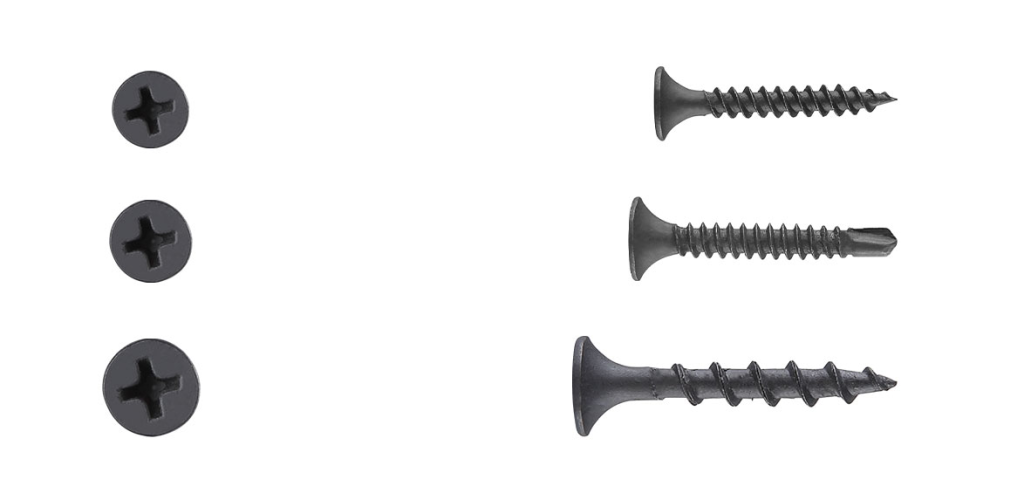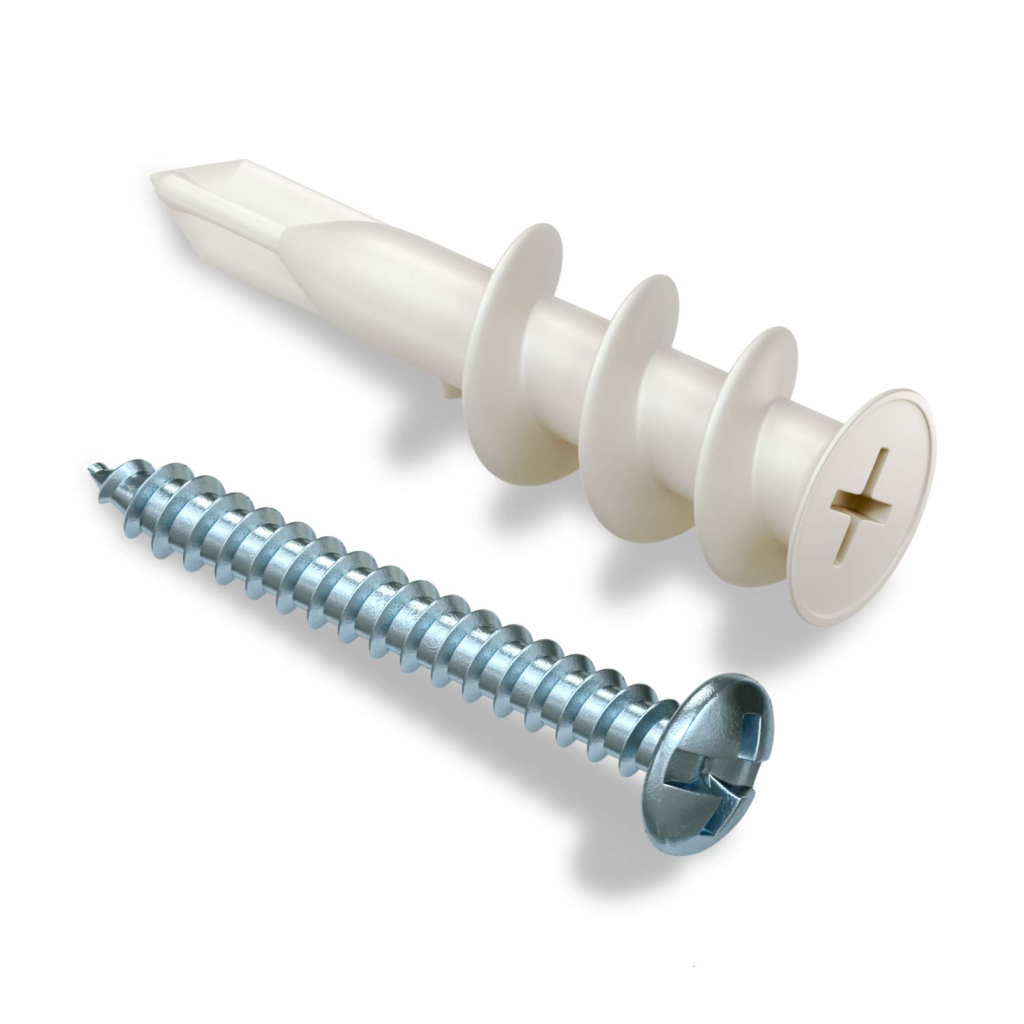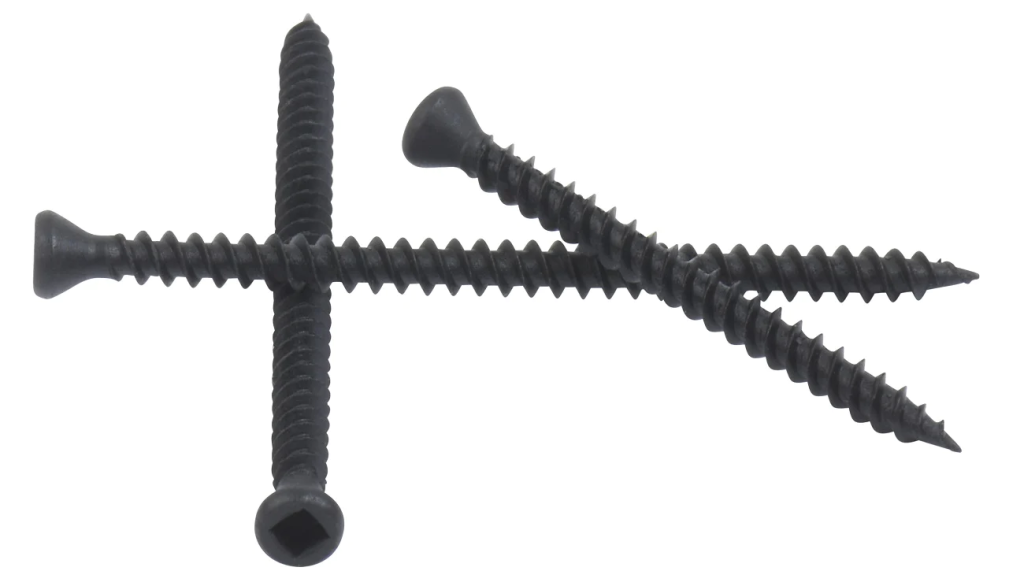Drywall screw types can vary based on their specific design features and intended applications. While they all serve the primary purpose of fastening drywall panels to wooden or metal studs, certain differences distinguish various drywall screw types. Here are some common drywall screw types and their key differences:
1.Coarse Thread Drywall Screws: These are the most common type of drywall screws. They have a coarse thread design with a sharp point, allowing for quick and easy insertion into the drywall and the underlying studs. Coarse thread drywall screws offer excellent holding power and are suitable for most standard drywall installations.

2.Fine Thread Drywall Screws: Fine thread drywall screws have a tighter and finer thread pattern compared to coarse thread screws. They are often used in situations where a stronger grip is required, such as when working with metal studs or when attaching drywall to thinner materials.

3.Self-Drilling Drywall Screws: Self-drilling drywall screws have a unique point design that eliminates the need for pre-drilling pilot holes in metal studs or wooden studs. These screws can penetrate the metal studs directly without causing damage to the material.

4.Self-Tapping Drywall Screws: Self-tapping drywall screws have a sharp point and a coarser thread that allows them to create their own threads in the drywall, eliminating the need for pre-drilling pilot holes. They work well in soft materials like wood and can also be used in metal studs.

5.Gypsum Board Screws: Gypsum board screws are specifically designed for use with gypsum boards and drywall. They often have a larger and more pronounced bugle head, which helps to evenly distribute pressure on the surface of the drywall, reducing the risk of surface damage.

6.Black Phosphate Drywall Screws: These screws have a black phosphate coating, which provides some corrosion resistance. They are commonly used in indoor applications where moisture exposure is minimal.

7.Galvanized Drywall Screws: Galvanized drywall screws have a zinc coating that provides a higher level of corrosion resistance, making them suitable for exterior and humid environments.

8.Trim-Head Drywall Screws: Trim-head drywall screws have a smaller head diameter, which allows for a flusher finish when attaching drywall to metal studs or when working with corner beads and trim applications.

9.Bugle-Head Drywall Screws: Bugle-head drywall screws have a slightly rounded head that provides a smooth finish and prevents the head from tearing the paper surface of the drywall.

It’s essential to choose the right drywall screw type for your specific project requirements. Factors to consider include the type of studs (wood or metal), the thickness of the drywall, the environment (indoor or outdoor), and the desired finish. Selecting the appropriate drywall screw ensures a secure installation and a professional-looking result.

